in cooperation with Audible
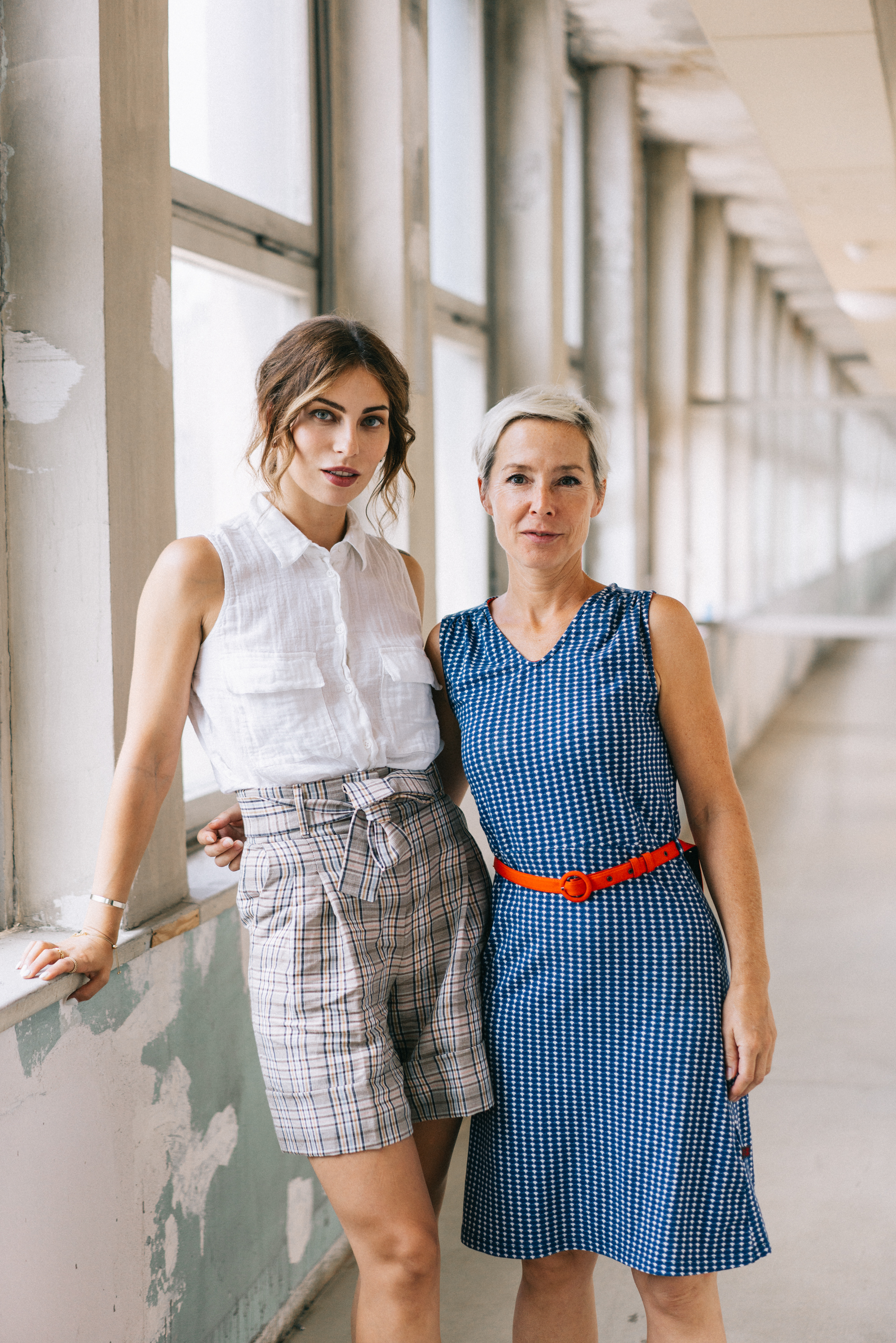
A little while ago I had the chance to meet Vera Teltz, an actress, voice actress and dubbing artist. Vera has recorded a number of Audible audiobooks, for example the Heiress, or, most recently „Hemingway and I“. If you‘re like me and listen to audiobooks frequently, you may have noticed that there are comparatively few female voice actors on the scene. And Vera is not only a true rarity in her profession, she is a veritable superstar in her field. I had the privilege to do a little interview with Vera, where we chatted about her career up to this point, her daily life with all its specific challenges, and of course the question how one becomes a voice actor for audiobooks in the first place. Curious? Enjoy the read!
M: Would you like to briefly introduce yourself in your own words? V: Yes, sure – my name is Vera Teltz. I am an actress and voice actress, and I have had the fortune to gather a wide variety of experiences in my life and my profession. It feels like I have experienced all facets, really. Most recently I have been doing more and more work on audiobooks – like today, in this studio here. M: How would you describe your profession in general terms? V: I‘d say I am an actress, even though I focus mainly on voice acting right now. M: What exactly does a voice actor do? V: I imagine that most readers will already have an idea what an audiobook is. In addition to that line of work I also do a lot of dubbing. When they hear that, a lot of people ask me „Can I try that as well?“. So I end up with the thankless task of explaining that voice acting is much closer to classic acting than most people realize. As a voice actress or actor, you need to be able to act. M: How do you become a voice actress? V: I‘d actually consider it a specialization that falls in the general acting bracket. Personally, I already started during my acting training, back then also with the motivation to earn some extra money to support my studies. I realized very quickly that language, and by that I mean the auditive component of language, seems to be my biggest talent, and so one thing lead to another. M: But are most voice actors automatically stage or TV/film actors as well? V: Many are indeed actors, and many of my colleagues have literally grown into the profession as voice actors or dubbing artists. In my experience, there are few career changers in the voice acting industry, maybe there‘s a slight crossover with musicians, which would make sense, since you need a natural sense of rhythm in this profession. M: What skills should a voice actress posses? V: A sense of rhythm is crucial, and I say that without going into my personal belief that you are either born with it or acquired it in through acting training. You have to be capable of fully immersing yourself in the moment you perceive, to follow a certain train of thought you identify and to act it out. That means you need to have learned to offer your body up to the role. For example, if I see a woman who is incredibly angry, I need to be able to let this emotion pass through my body. I think there are some people who are born with that talent, but the usual path towards mastering this skill leads through acting school. You also need to be able to work in a team, since you are dealing with a lot of people. Next to you sits the cutter, director and sound engineer, all of whom want a certain aspect of performance out of you. You certainly need to be able to stay calm, to stay centered within yourself. M: How much of a factor is creative expression as opposed to classically trained expression? V: There is of course much less freedom in dubbing than in voice acting for audiobooks and the like. There always remains a small space where creativity comes into play, which is why on the end it certainly does make a difference who the voice actor is. Otherwise we‘d all be disposable, replaceable. Concretely, every voice actor brings their own timbre, their personality, but also their perspective on the character or the film – but the range of expression is admittedly limited. That‘s something you need to live with as an artist (laughs). I once worked in a theater on an opera production, with a singer next to me and an orchestra in front of me. We were only two actors, and the rest of the ensemble consisted of singers. It was surprising to me to see how the singers took their rhythmical cues from the conductor. Personally, this would have driven me mad. In my mind, and in my line of work, my expression is shaped by the rhythm I give my phrases, and the pauses I allow for. How crazy to have someone else make these decisions for you. But dubbing is in fact a little bit like that. It‘s more of an applied craft rather than a form of creative expression.
M: What’s your typical day like as a voice actress? V: Since I‘m a voice actress but also an actress in the classic sense, my life is pretty varied. After dubbing jobs, where a lot of people tell you what to do, I love doing audiobooks, where I have the freedom to make my own decisions. When it comes to dubbing, it‘s not unheard of that I have to drive to four studios in one day to record takes. Unlike shooting a film, dubbing one is a relatively swift process. On days like that I head into the city and visit different studios to record different parts. This also means I meet a lot of different people who I need to adjust to, and then of course the different characters I meet in my roles. And then there are also plenty of administrative jobs that stack up, coordinating dates, taxes, all the things you need to take care of as a freelancer. M: How compatible are the acting profession and a career as voice actress? V: There‘s an unwritten and very helpful law in the voice acting industry, which goes: „shooting comes first“. In other words, when you have work lined up that involves a shoot, everyone will go out of their way to adjust their agendas around it. Dubbing is actually a very flexible line of wirk, which I am grateful for. I am a mother, and I really appreciate the freedom of being able to say if I can only work until 15:00 on a given day. Things like that. Of course there are plenty of stressful moments all the same, but my experience is that the overall vibe is very supportive. Shooting, on the other hand, is very inflexible, which means you as an actress need to adjust your schedule to the production, which in turn can also mean that the dubbing work is then pushed into the evenings or weekends. M: Which advantages do you draw from your work as voice actress for acting in the wider sense? V: Primarily I‘d say that voice acting makes me much more spontaneous and fearless, not least because there‘s always the possibility to re-record a take. I used to be much more of a perfectionist, which also made me more controlled. But in the end all you can do is try different things, and that‘s best achieved if you don‘t overthink and just go ahead without fear. I believe that spontaneity is also an important factor, probably the biggest single asset an actor can bring to a production. M: Did you ever encounter characters that you could identify with particularly well? And conversely, did you ever act out character you really disliked? V: Unfortunately there were a bunch of characters I really didn‘t like very much. That happens quite frequently, I must say. I did a couple of detective stories where I felt the characters were really uptight and ended up getting on my nerves a bit. And then you realize that people will associate those character traits with you as an actress, and there‘s nothing you can do against it. But I had the great fortune of reading a great many wonderful books as well, which often involved acting out very special characters. Today, for example, we finished recording „Hemingway and I“, which tells the story of one of Hemingway‘s women, Martha Gellhorn. It is impossible for me to compare myself with her, as she was an immensely courageous war correspondent. She really impressed me profoundly. And there were in fact facets of her life that I could really identify with. M: Which of the two is the bigger challenge? V: For me it‘s certainly a much bigger challenge to play or read characters that I personally dislike. That puts me in a position where I need to find some aspect of the character that I like, or that i imagine the listener could like. In those moments, approaching the work like that, I am more like a service provider to the listeners. Personally, I aim to always infuse my characters with a certain energy, and I do my best to make each of them come to life. Also, to delve a bit deeper, if the dislike is not a personal emotion, if it stems from the dramaturgical function of the character, it can be great fun to play unlikable roles as well. All characters I admire or who I identify with, enjoy the act of speaking. Above all, I love reading dialogues, they sometimes unravel as if on their own, and I think to myself „What an amazing job. I am so lucky!“ (laughs).
“I did a couple of detective stories where I felt the characters were really uptight and ended up getting on my nerves a bit. And then you realize that people will associate those character traits with you as an actress, and there‘s nothing you can do against it.”
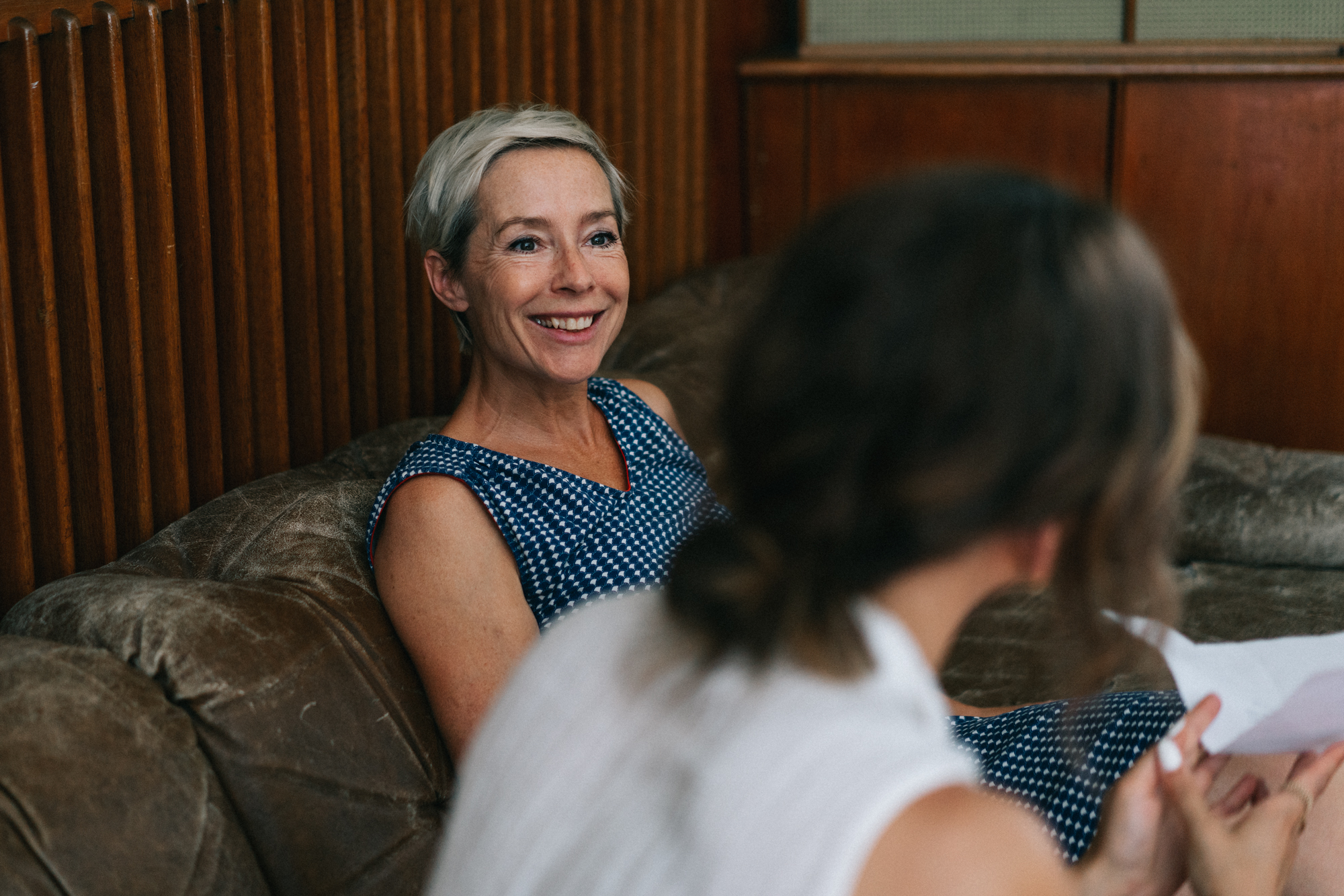
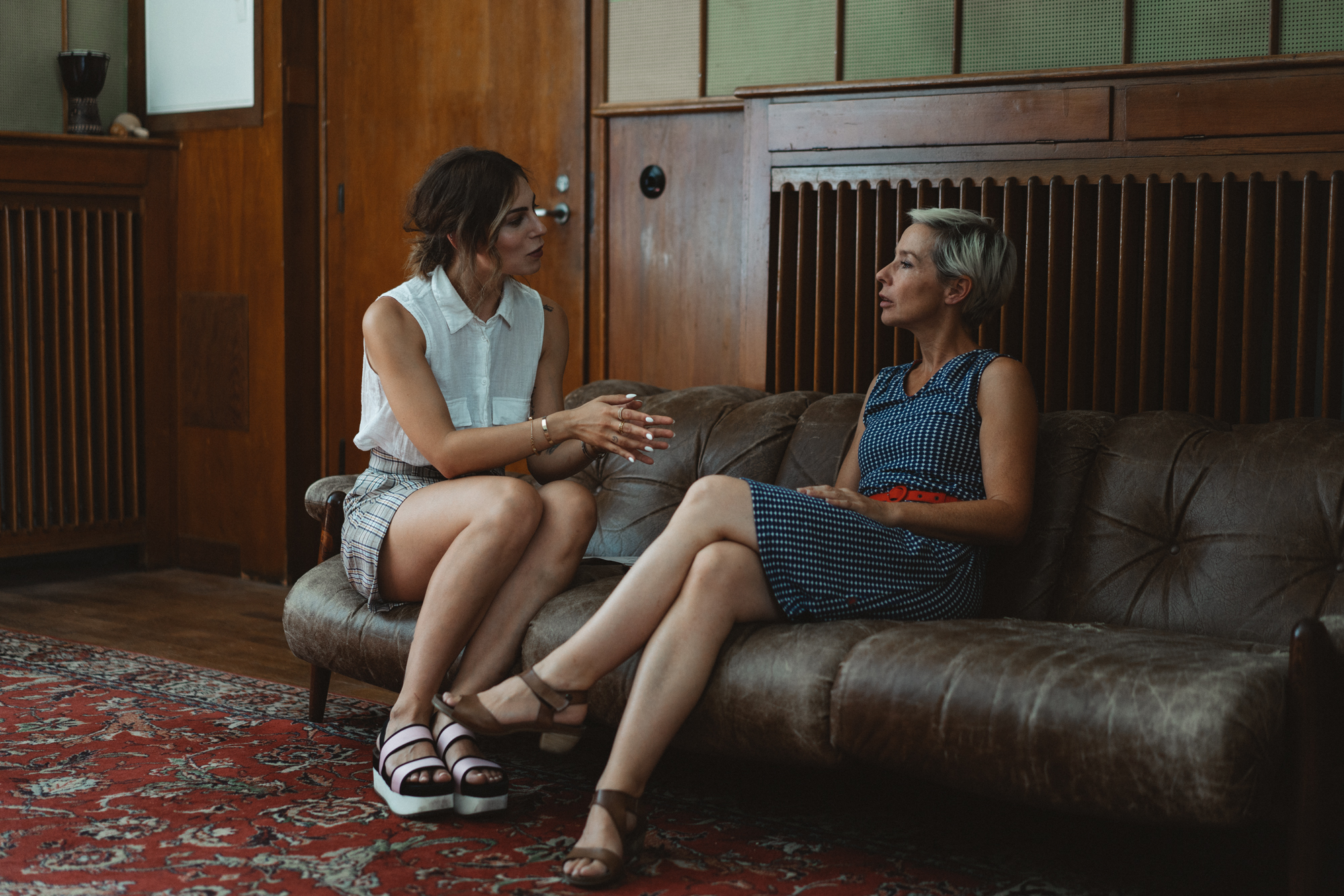
“The most beautiful aspect of my work is the feeling that I brought something to life, to really have given a part of myself to fill a story with life.”
M: Have you ever met any actress you provide the German dubbing voice for in person? V: Unfortunately no, not yet. I have seen a few of them from a certain distance at premieres, but sadly I never met any of them yet. I imagine it to be a really interesting experience, in the best sense, both for the actress as well as for myself. Closely observing and analysing another person leads to a sense of familiarity. This is true for all of us who consume films. Everything is so absurdly close on the TV screen, and our emotions are amplified that way, and projected well beyond our personal sphere of intimacy, which creates the illusion that we know the person whose performance we watch. M: A general question: what was your most beautiful experience in our field, and is there a goal you have yet to reach? V: The most beautiful aspect of my work is the feeling that I brought something to life, to really have given a part of myself to fill a story with life. Work done without compromises always makes me feel particularly good, work where I am fully content with my interpretation. As far as goals are concerned, I would love to do more audiobooks, which fortunately is the case right now. Reading audiobooks marries to perspectives: creative expression, where something new is created in the moment, but at the same time I remain on the auditive plain, where I really feel at home. So I‘m really happy to see that more and more people seem to be getting into audiobooks. The most beautiful aspect of my work is the feeling that I brought something to life, to really have given a part of myself to fill a story with life. M: Are you sometimes recognized from your voice in daily life? V: That doesn‘t happen all that often, but there were a couple of instances where people felt a sense of irritation and thought „I know you, don‘t I?“. I usually answer that it must be my voice, and then the situation is quickly resolved.
M: Do you have an absolute favorite role? V: One audiobook, „Burial Rites“, is unforgettable for me. It tells the story of the last convicted murderer in Iceland in the 19th century. The book is written in a tone and language that really moved me deeply. I was very empathic with the character, and even though I knew all along that she was going to be executed in the end I couldn‘t help but root for her until the end. I also very much enjoy dubbing Naomi Harris, who played Calypse in Pirates of the Carribean, among many other roles. I loved voice acting this particular role of a female shaman. Another highlight was reading the audiobook to Margaret Atwood‘s „The Handmaid‘s Tale“, which was an amazing experience as well. I felt very blessed to have been chosen for those projects. M: Are there any roles you‘d really love to play? Or a certain kind of role you have not acted yet? V: I actually like everything that‘s not steeped in clichés. Personally, I think tough characters work really well for me. All roles that subvert clichés and challenge me, for example this role I finished reading today, a woman in a really tough job, who at the same time describes herself as very insecure, tender and desperate. Complexity coupled with emotional depth is very appealing to me. M: And last but not least, all things considered: would you say that voice acting is a dream job? V: Absolutely. I find myself thinking that really frequently when I read a book and get to bring a fascinating story to life. I also appreciate the flexible working hours, which provide a good income but also leave me enough time for my family. What more could anyone ask for, right? It all works together to form a whole, and at the end of the day I can say I live an incredibly beautiful life that I am more than grateful for.
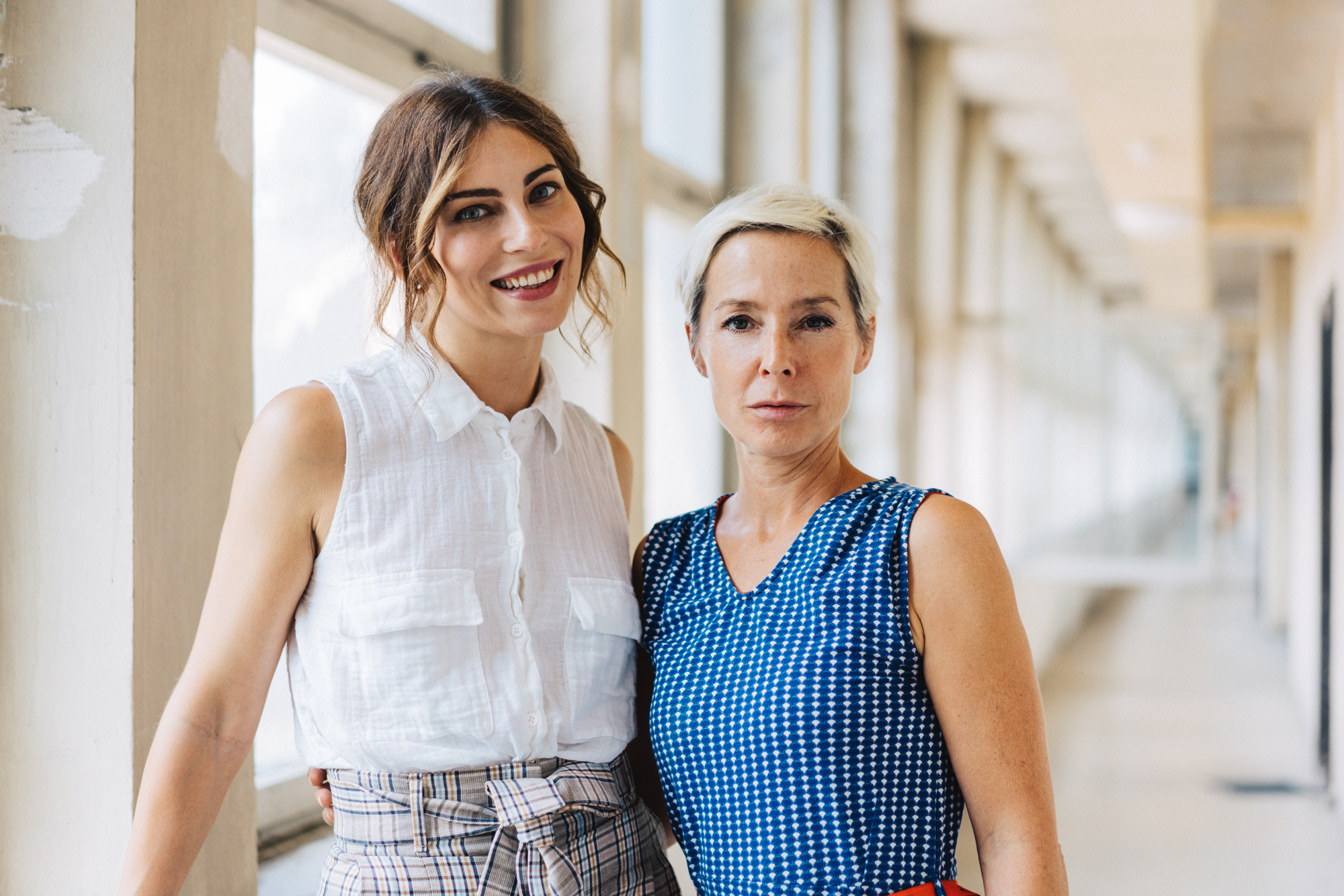


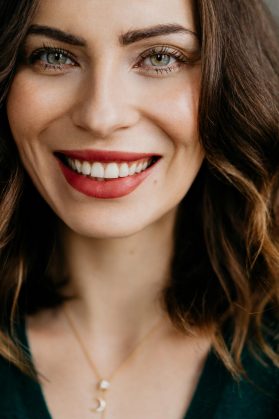
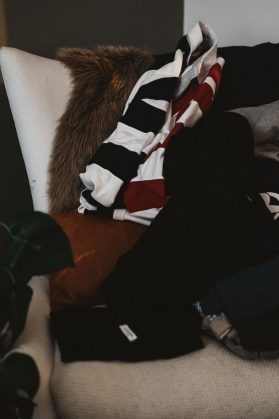

My mum was used to do it for charity, for blind people… So important
http://7-sevendays.blogspot.gr/
Great post dear!
http://www.evdaily.blogspot.com